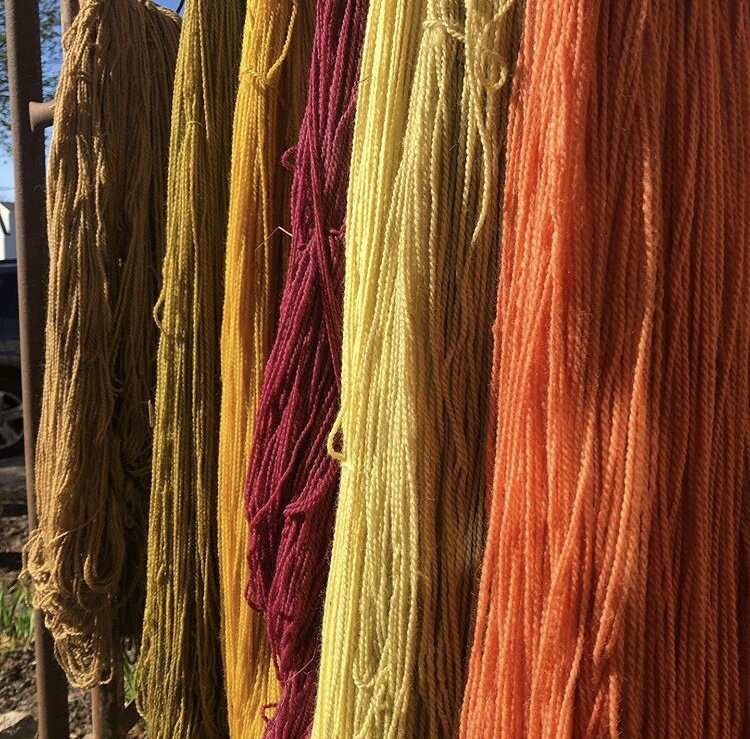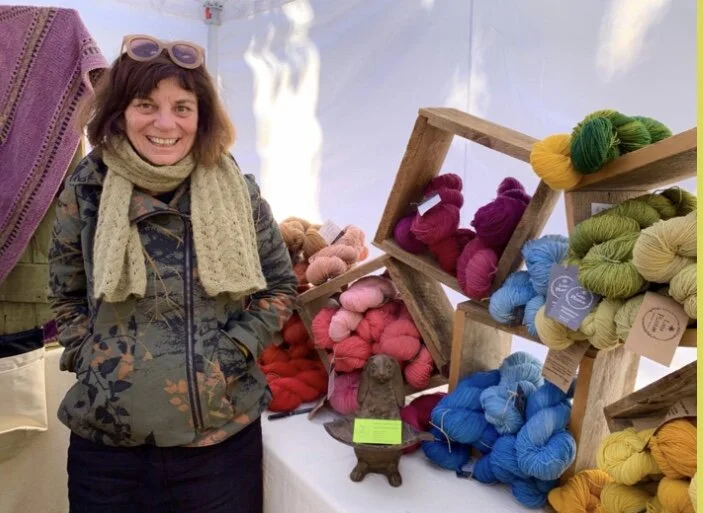From the Farm
Shop our yarns
We feature naturally dyed rambouillet and alpaca/rambouillet blend yarns as well as other regional wool sourced from small farms. Our yarns are minimally and beautifully processed at Green Mountain Spinnery in Vermont. No harsh scour or softening agents are used. We use only natural dyes to color our yarns and choose plants and insects that create lasting color. In season we also grow many dye plants. Natural plant and insect derived colors harmonize beautifully together.
Our inventory may vary depending upon what fibers we come upon in our travels. We love all types of wool! Our signature rambouillet yarns in worsted and fingering weight are always available. All the yarn in our shop is listed by dye lot.
Different fiber for different uses. You will be happy with what you create if you know a bit about the fibers and how to best use the yarn.
Current fiber types offered-
Rambouillet- The rambouillet breed was derived from Spanish merino. Merino were outcrossed with long wool breed,s eventually producing a larger sheep with a heavier clip. They are still the largest fine wool breed of sheep. Rambouillet are hardy and able to live in a variety of conditions. Like merino, rambouillet produce a beautifully soft wool. Yarn made from rambouillet is perfect for making warm items you want to wear close to the skin.
Targhee- This sheep breed was created in the American west. Rambouillet rams were crossed with Lincoln and Corriedale ewes. The result is a hardy and tough breed able to survive on western range land. Due to their rambouillet heritage they too have a soft white fleece perfect for making garments to wear close to the skin.
Lincoln- Lincoln sheep are perhaps the largest sheep in the world. They grow luminous, long locks that can be used right off the animal. This is a strong but coarse wool. It will create incredibly durable goods but is best suited for items not worn close to the skin. Coarse wool can be itchy. Perfect for durable outerwear and rug making.
Alpaca- New world camelids from South America, alpacas grow a soft wool that is warm and durable and void of lanolin. Most alpaca fiber can be worn close to the skin but alpacas do get coarser as they age, so we use our alpaca fleeces in various ways after evaluating for best use. Currently we have an alpaca/rambouillet blend yarn.
Learn about our process
A very brief introduction to the dye process.
Find us at upcoming events
We travel to attend many fairs and fiber events and host many on farm open houses and workshops. Follow link to see what we are up to.



